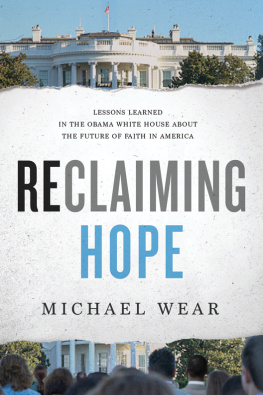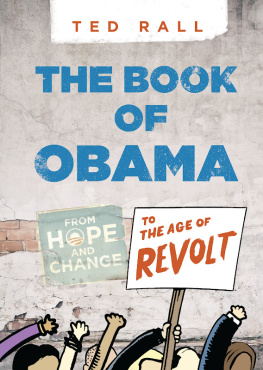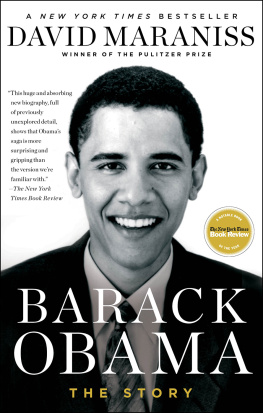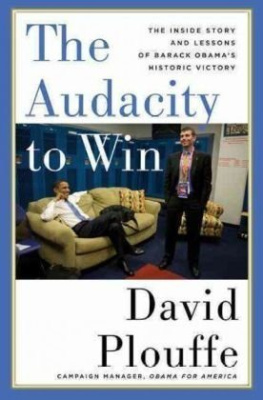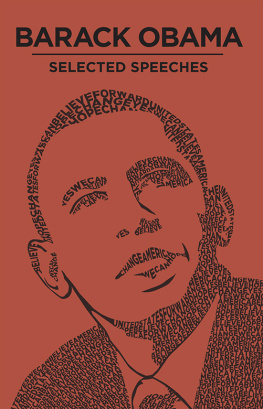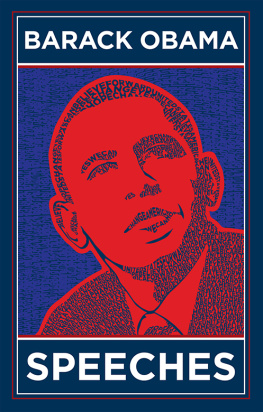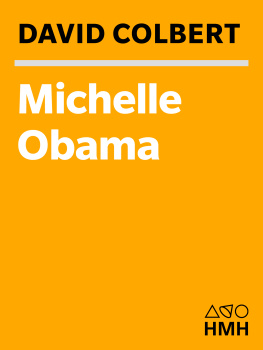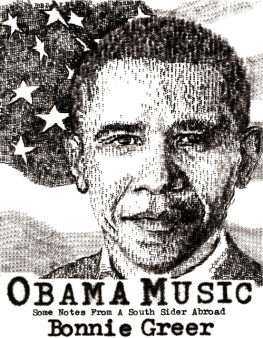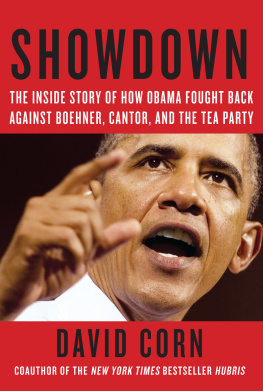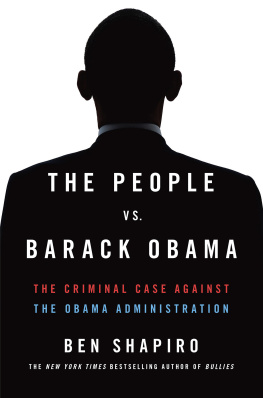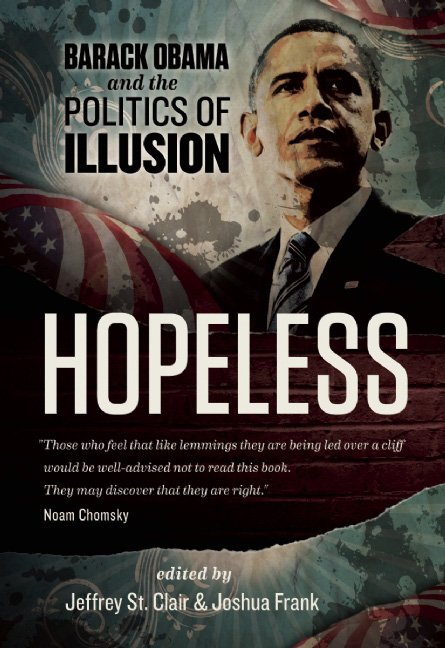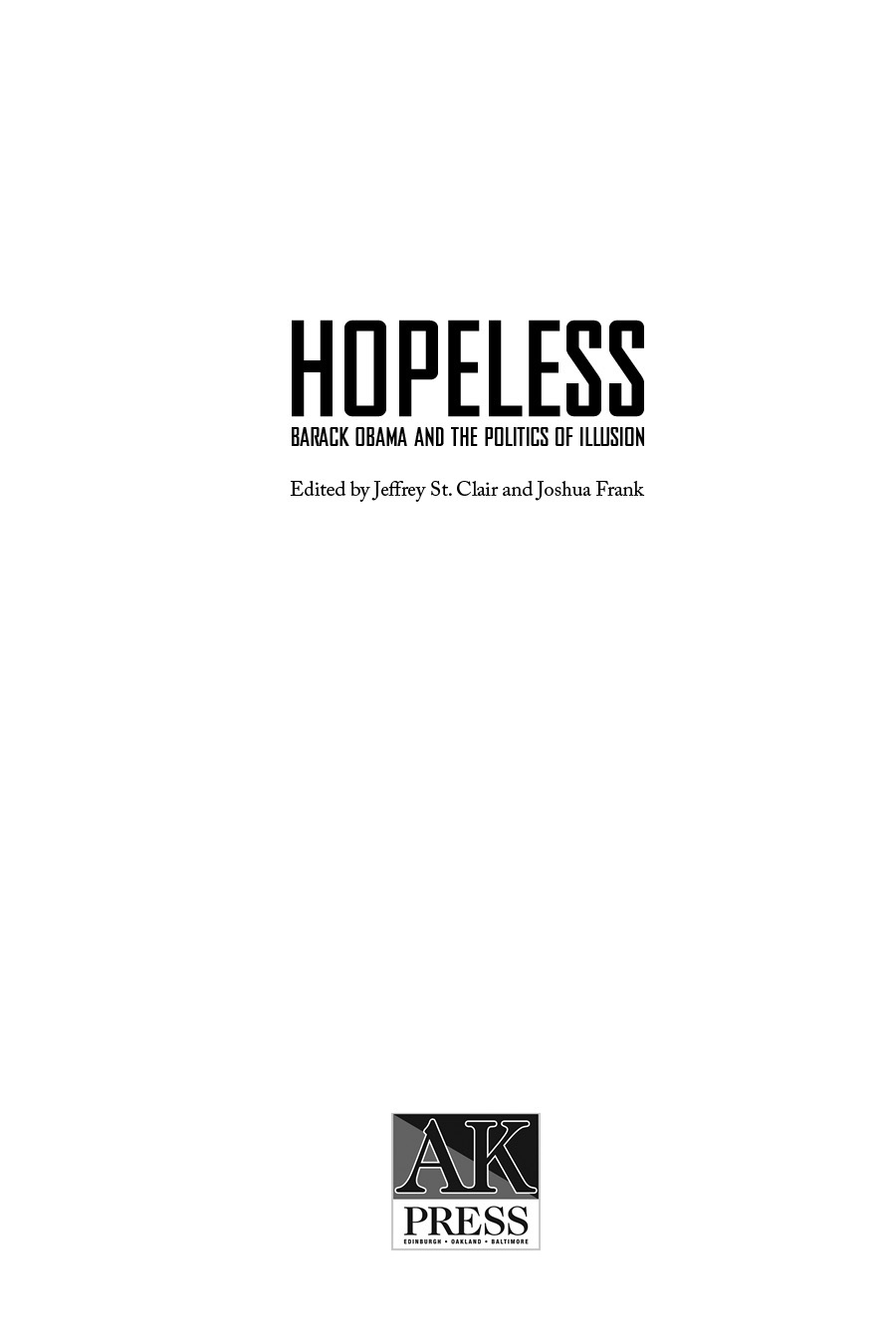Prelude: Barack Obama, Changeling
By JEFFREY ST. CLAIR and JOSHUA FRANK
Damaged goods, send them back
I cant work, I cant achieve, send me back
Open the till, give me the change
You said would do me good
Refund the cost
You said youre cheap, but youre too much
Damaged Goods, Gang of Four
Barack Obama was in Brasilia on March 19, 2011, when he announced with limited fanfare the latest war of his young presidency. The bombing of Libya had begun with a hail of cruise missile attacks and air strikes. It was something of an impromptu intervention, orchestrated largely by Hillary Clinton, Susan Rice and the diva of vengeance Samantha Powers, always hot for a saturation bombing in the name of human rights.
Obama soon upped the ante by suggesting that it was time for Qaddafi to go. The Empire had run out of patience with the mercurial colonel. The vague aims of the Libyan war had moved ominously from enforcing a no-fly zone to seeking regime change. Bombing raids soon targeted Qaddafi and his family. Coming in the wake of the extra-judicial assassination of Osama Bin Laden in a blood-spattered home invasion, Qaddafi rightly feared Obama wanted his body in a bag, too. (In the end, Qaddafis butchered body was put on public display in a Benghazi meat locker.)
Absent mass protests against the impending destruction o f Tripoli, it fell to Congress to take some tentative steps to challenge the latest unauthorized and unprovoked war. At an earlier time in the history of the Republic, Obamas arrogant defiance of Congress and the War Powers Act of 1973 might have provoked a constitutional crisis. But these are duller and more attenuated days, where such vital matters have been rendered down into a kind of hollow political theater. All the players duly act their parts, but everyone, even the cable news audience, realizes that it is just for show. The wars will proceed. Congress will fund them. The people will have no say in the matter. As Oscar Wilde quipped: All the worlds a stage, badly cast.
That old softy John Boehner, the teary-eyed barkeeps son, sculpted a resolution demanding that Obama explain his intentions in Libya. It passed the House overwhelmingly. A competing resolution crafted by the impish gadfly Dennis Kucinich called for an immediate withdrawal of US forces from operations in Libya. This radically sane measure garnered a robust 148 votes. Obama dismissed both attempts to downsize his unilateralist approach to military operations, saying with a chill touch of the surreal that the 14,000-and-counting sorties flown over Libya didnt amount to a war.
This is Barack Obama, the political moralist? The change agent? The constitutional scholar? Listen to that voice. It is petulant and dismissive. Some might say peevish, like the whine of a talented student caught cheating on a final exam.
Yes, all the political players were acting their parts. But what role exactly had Obama assumed?
Obama, the Nobel laureate, casts himself as a New Internationalist, a chief executive of the global empire, more eager to consult with European heads of state than members of Congress, even of his own party. Indeed, his co-conspirators in the startling misadventure in Libya were David Cameron and Nikolas Sarkozy, an odd troika to say the least. Even Obamas own Defense Secretary, Robert Gates, seems to have been discreetly cut out of the decision loop.
We are beginning to see why Obama sparks such a virulent reaction among the more histrionic precincts of the libertarian right. He has a majestic sense of his own certitude. The president often seems captivated by the nobility of his intentions, offering himself up as a kind of savior of the eroding American Imperium.
While Obama sells pristine idealism to the masses, he is at heart a calculating pragmatist, especially when it comes to advancing his own ambitions. Obama doesnt want to be stained with defeat. Its one reason he has walked away from pushing for a Palestinian state, after his Middle East envoy George Mitchell resigned in frustration. Its why Obama stubbornly refused to insist on a public option for his atrocious health care bill. Its why he backed off cap-and-trade and organized labors card check bill and the DREAM Act.
Obama assumed the presidency at a moment when much of the nation seemed ready to confront the unwelcome fact that the American project had derailed. Before he died, Norman Mailer lamented that the American culture was corroding from a bad conscience. The country was warping under the psychic weight of years of illegal wars, torture, official greed, religious prudishness, government surveillance, unsatisfying Viagra-supplemented sex, bland genetically engineered food, crappy jobs, dismal movies, and infantile, corporatized musicall scrolling by in an infinite montage of annoying Tweets. Even the virtual commons of cyberspace had gone solipsistic.
Corporate capitalism just wasnt delivering the goods anymore. Not for the bottom 80 percent, any way. The economy was in ruins, mired in what appeared to be a permanent recession. The manufacturing sector had been killed from the inside-out, with millions of well-paying jobs outsourced and nothing but dreary service-sector positions to take their place. Chronic long-term unemployment hovered at more than 10 percent, worse, much worse, in black America. Those who clung to their jobs had seen their wages stagnate, their home values shrivel and were suffocating under merciless mounds of debt. Meanwhile, capital moved in ever-tightening circles among a new odious breed of super-rich, making sweat-free billions from the facile movement of digital money.
By 2008, the wistfulness seemed to have evaporated from the American spirit. The country had seen its own government repeatedly prey on its citizens fear of the future. Paranoia had become the last growth industry. From the High Sierras to the Blue Ridge, the political landscape was sour and spiteful, the perfect seed-ground for the sprouting of the Tea Party and even ranker and more venomous movements on the American right. These were not the ideological descendents of the fiery libertarian Barry Goldwater. The tea-baggers lacked Goldwaters western innocence and nave idealism. These suburban populists, by and large, were white, unhappy and aging. Animated by the grim nostalgia for a pre-Lapsarian fantasyland called the Reagan administration, many sensed their station in society slipping inexorably away. They wanted their country back. But back from whom?
Instead of blaming corporate outsourcers or predatory bankers, they directed their vindictive impulse toward immigrants and blacks, government workers and teachers, scientists and homosexuals. Theres something profoundly pathetic about the political fatalism of this new species Know-Nothings. But, it must be said, their wrath was mostly pure. This strange consortium of discontent seethed with an inchoate sense of alienation, an acidic despair at the diminished potentialities of life in post-industrial America.
No, these were not fanatical idealists or even ante-bellum utopians. They were levelers, of a sort, splenetic and dread-fuelled levelers, conspiratorialists with a Nixonian appetite for political destruction. Primed into a frenzy by the cynical rantings of Glenn Beck and Rush Limbaugh, mass gatherings of Tea Partiers across the summer of 2009 showed signs of a collective psychopathy, as if the enervating madness from decades of confinement in the hothouse of the American suburbs had finally ruptured in primetime for all the world to watch over-and-over again on YouTube with mounting mortification. Right there on the National Mall could be heard the vapid gibberish of Michele Bachmann and the new American preterite, those lost and bitter souls who felt their culture had left them far behind.


